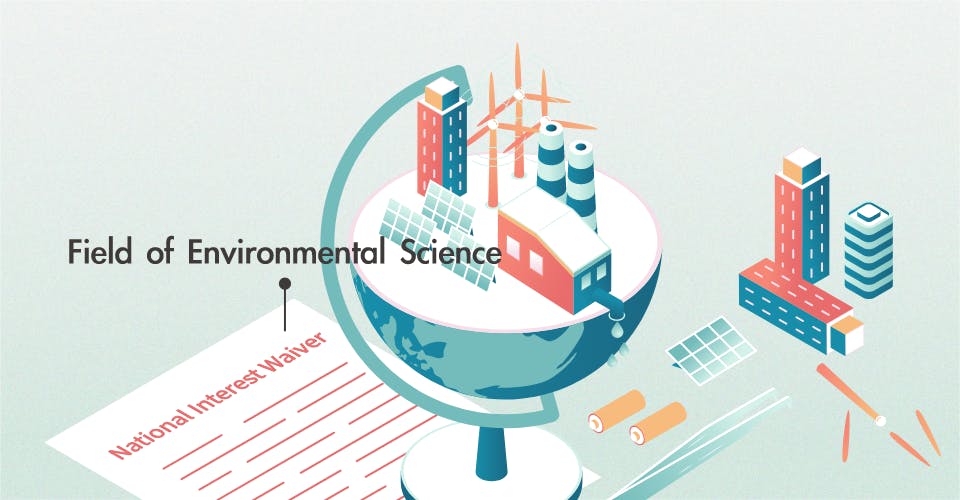The national interest waiver (NIW) is not only reserved for applicants who are working in the life sciences or for physicians needed in underserved U.S. communities. While research in these categories is critically important (especially in regards to cancer research), it is also worth mentioning that NIW applicants who are interested in the environment, and moreover environmental science, should pursue this path of legal immigration. This is because the United States could benefit greatly from experienced professionals whose career is in the environmental sector as climate change becomes and more of a reality and pressing concern.
Even 10 years ago, the threat of climate change was something the U.S. mainly passed off as a problem affecting lower and middle income countries. But today, we’ve already seen the damage that can be exacerbated by climate change with the prime example being last years California wildfires causing mass migration and destroying entire ecosystems. Today, we can clearly see the problem of climate change is something that is affecting the Western world as well. Therefore this blog is dedicated to better understanding the NIW application in the category of environmental science.
Eligibility and Career Experience
In order to pursue a national interest waiver as an environmentalist, the applicant needs to be working or have years of experience in a certain sector (usually 10 years of experience). Maybe that sector is forestry, and helping to curb the spread of annual wildfires, or maybe the applicants specialization is in urban planning, so cities are less congested and polluted during peak traffic hours. Whatever the case, the applicant cannot simply have a belief that environmentalism is the way forward, they need to have an actionable agenda for where they would work in the U.S. economy, and past experience and citations of how their scientific methods have helped, or would theoretically help with reducing emissions or other impactful measures related to the environment.
In addition, the U.S. faces unique sectoral challenges due to climate change. For example, parts of Miami, Florida are forecasted to be underwater in the coming years due to the increased and exponential melting of Arctic sea ice. So applicants who are able to clearly identify sectors, or cities where there work would be of value will increase their chances of being granted a NIW. The more context specific the better. USCIS officers will also have an easier time of adjudicating the application if the applicant can pinpoint a problem and a potential solution.
Is a PhD Needed?
The question of needing a PhD is always relative to the proposed endeavor. For example, North America Immigration Law Group assisted a client who had his PhD in environmental science, as the applicant had been studying organic pollutants for many years. But this is a research topic that also involves a good deal of chemistry in order to understand. Therefore a PhD track in this field makes sense. However, a successful urban planner with only a Masters degree might be able to receive an NIW with just a Masters degree. It simply depends on the case and how advanced the candidate is regardless of their schooling.
The Environmental Protection Agency
It should also be noted that the EPA should be a guiding resource for any NIW applicant as it can be a point of authority on many issues surrounding environmentalism. This is the United States’ leading institution and agency of the federal government that is in charge of protecting human health and the environment. If you go to their website, you can easily scroll through some of the ‘Environmental Topics’ to see past and present research the EPA is conducting on a variety of topics. What is even more useful for prospective NIW applicants is scrolling to the ‘Grants’ tab..
By re-locating to this page, applicants can see all of the Grants that can be awarded to researchers in the field of environmental science, as well as how to apply for a grant and the peer- review process. If you’re a prospective NIW applicant and received a grant from the EPA, this would be highly advantageous when a USCIS officer was reviewing your application package due to the reputation of the agency.
Overall, being able to relate your NIW application to a key matter being discussed or researched by the EPA shows the authority of the issue and its relevance to the U.S. economy. The EPA, or even having a letter of recommendation from an EPA official will make your NIW application stand out from the crowd.
Here is a link to the EPA Grants Home page: https://www.epa.gov/grants














